Mothers' plea to retain specialist neonatal units
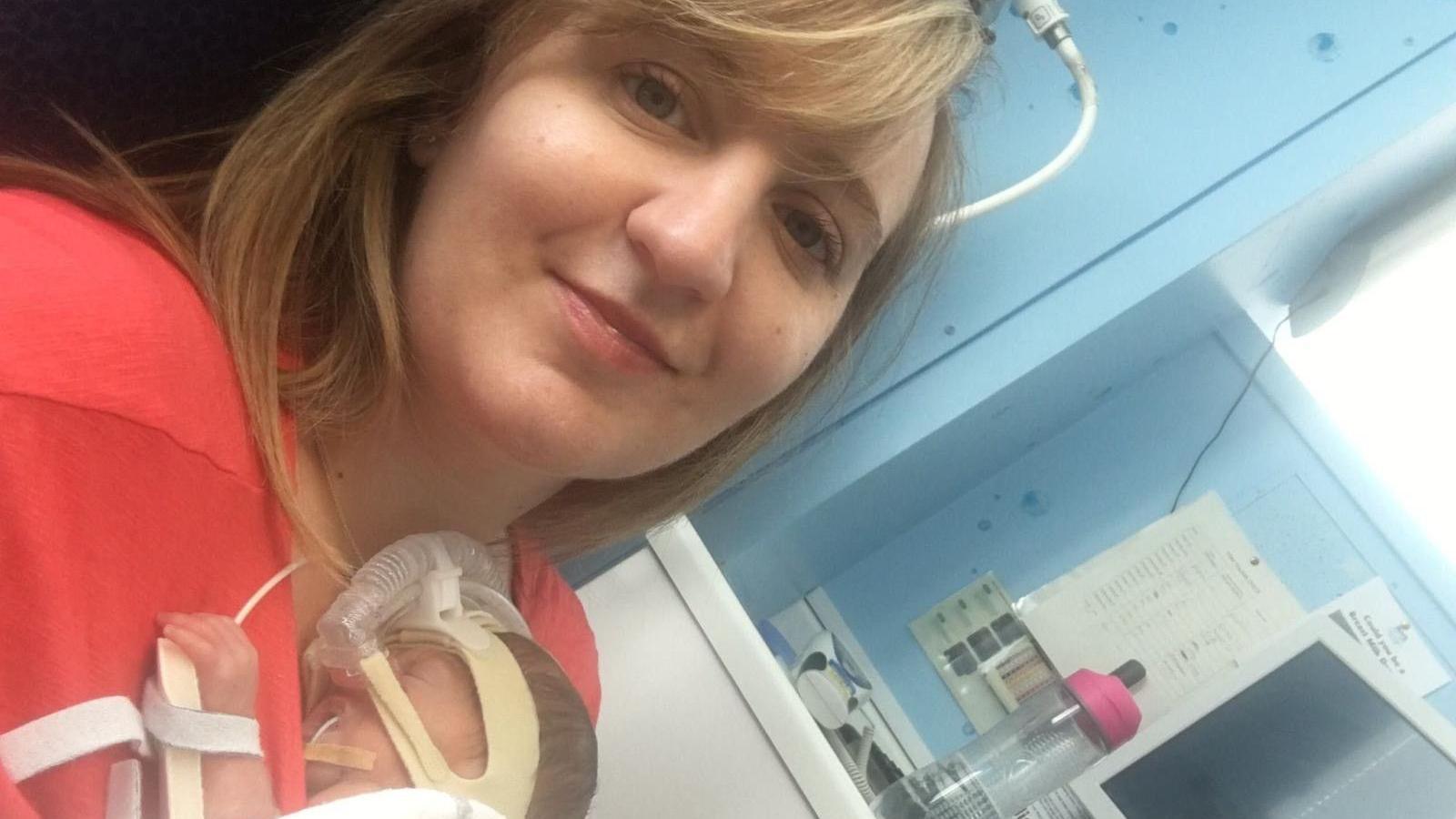
Nicola Donnelly's son Leo was born at only 25 weeks
- Published
Parents of premature babies are calling for a rethink of plans to centralise Scotland's neonatal intensive care units.
Mothers in Dundee are supporting a petition against the proposals to reduce the number of facilities treating the sickest babies from eight to three.
The other five hospitals – including Ninewells in Dundee - will continue to operate as local neonatal units.
Parents said it was "a huge waste" to reduce the services at those hospitals, but the Scottish government said the decision was "based on strong clinical evidence".
The proposals are also supported by premature baby charity Bliss.
Nicola Donnelly's son Leo was born at 25 weeks during a trip to London in 2017. After spending three weeks in hospital there, the pair were flown to the specialist unit in Dundee.
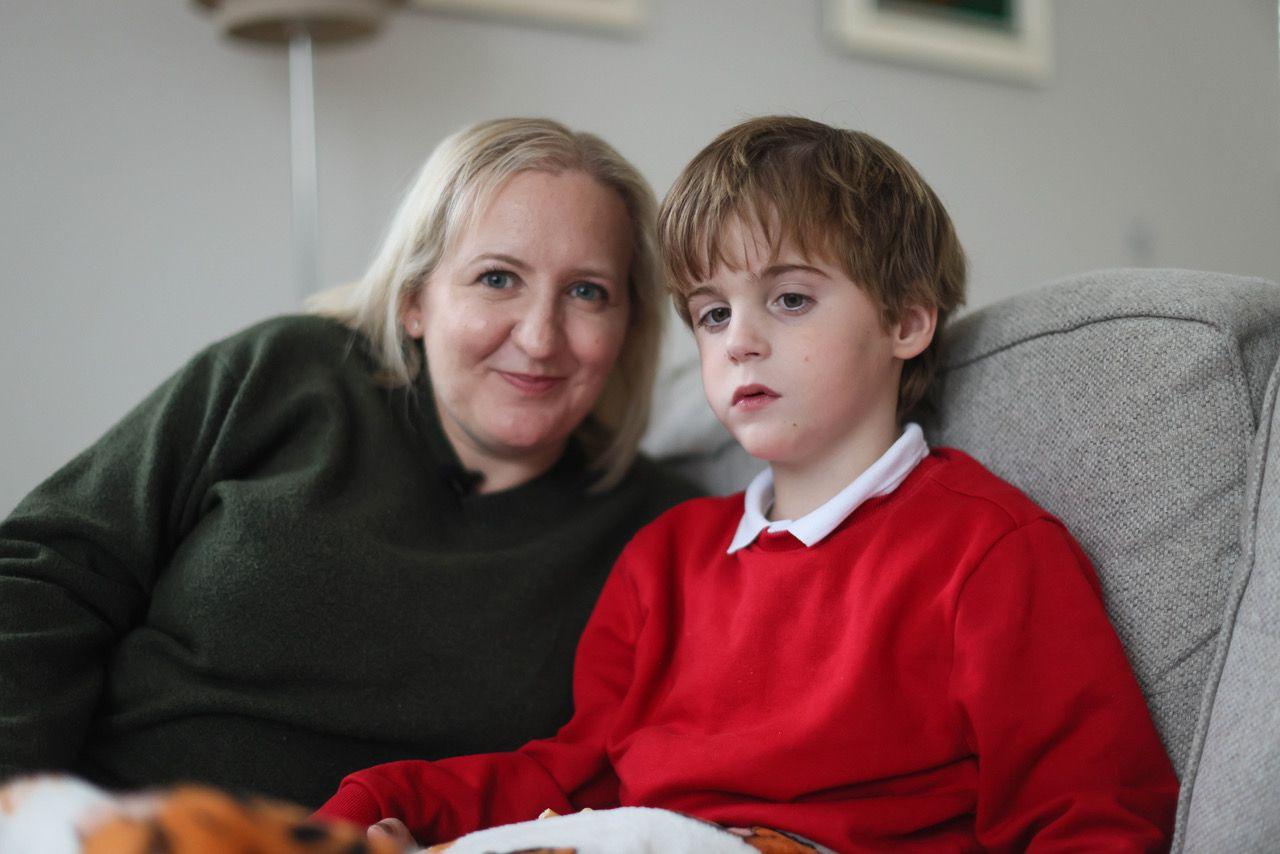
Nicola Donnelly said the care she and Leo received at Ninewells Hospital's NICU was excellent
Mrs Donnelly, 41, said some of her son's nurses had also treated her own sister, who was born premature more than 20 years earlier.
"There's so much experience there, they're updating their training all the time. Their instincts with these babies is second to none.
"I just think it's a huge waste to have that facility there, quite newly-renovated, with really highly-trained staff, and take it away."
She said the local specialist care at Ninewells had been "excellent".
Mrs Donnelly said: "I remember when we got into the neonatal unit at Ninewells, one of the nurses said, 'You can relax, you're home now'.
"And that's really how it felt from then on in. They took amazing care of Leo but they also took very good care of us."
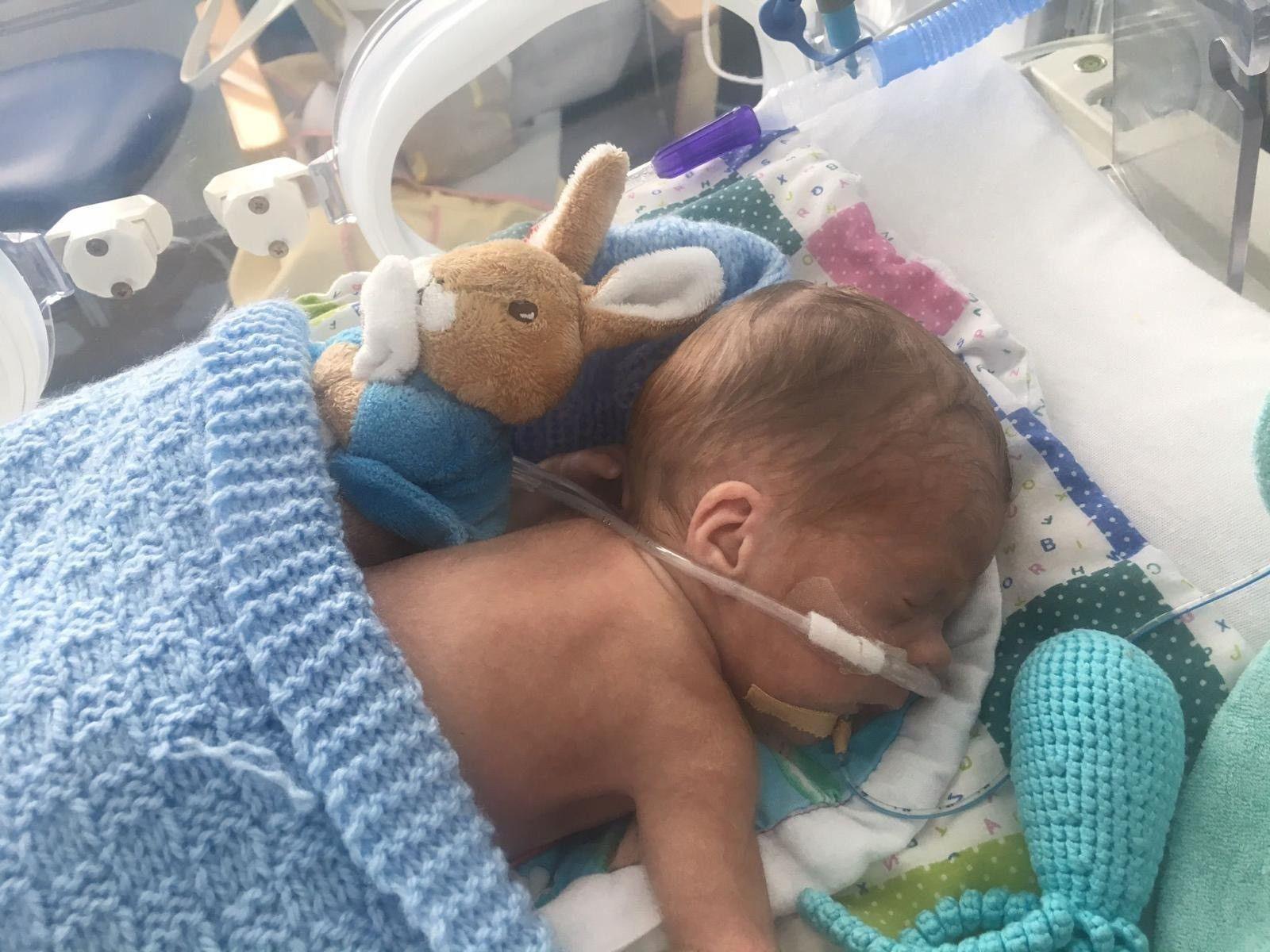
Leo Donnelly was transferred to the NICU in Dundee after three weeks in a London hospital
Mrs Donnelly said that being close to home was one thing which could support parents and make things easier for them.
She said other parents of premature babies had been "galvanised" by the proposals to reduce the number of NICUs.
More than 20,000 people have signed a petition against the move.
Megan Scott's son Charlie was born 10 weeks early in 2018. He spent 70 days in the NICU at Ninewells, receiving what his mother described as "unbelievable care."
"I was 21, a single mum, I was unemployed, just out of university. To have that support there was absolutely essential," said Ms Scott.
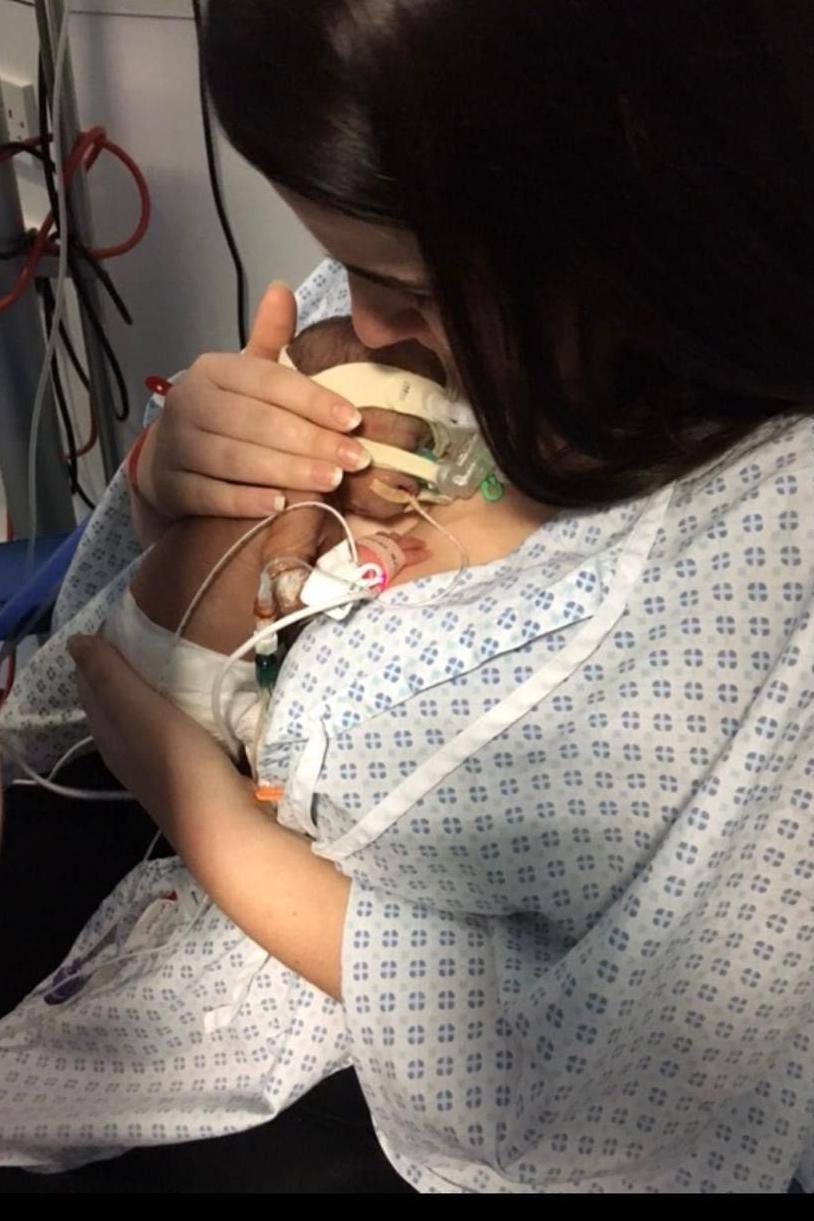
Megan Scott's son Charlie was born 10 weeks early
"I don't think we would have got through as well as we did if we hadn't been in Dundee," she said.
"Nothing can compare to the care that my sick baby got from the NICU in Ninewells.
"The doctors, nurses and consultants are a lifeline for these babies and families - I don't believe there's a better place."
Ms Scott said there was a "level of terror" sitting in a high-dependency area in hospital "hoping and praying your baby is going to make it".
Neonatal intensive care units provide a full range of medical neonatal care, including for babies and families referred from other units for specialised care.
Local neonatal units provide specialist and high-dependency care, which includes short-term neonatal intensive care.
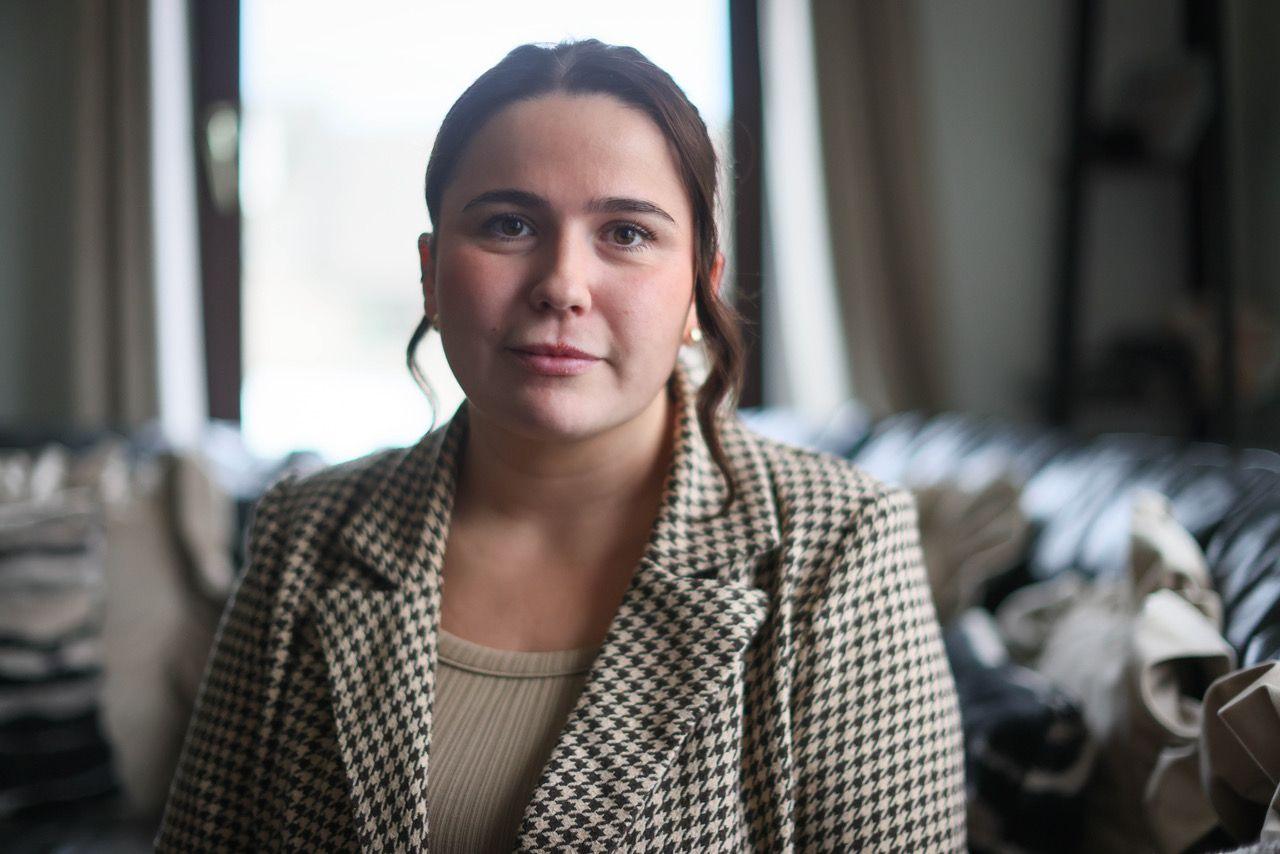
Megan Scott said she believed nothing could compare to the care she received at Ninewells NICU
Under the Scottish government plan, which was announced in 2023, care for babies born at less than 27 weeks, who are lighter than 800g (1.76lb), or who need specialist complex care, will be provided at the three national NICUs.
These will be based at Aberdeen Maternity Unit, Edinburgh Royal Infirmary and Queen Elizabeth University Hospital in Glasgow.
The five other units - at Ninewells in Dundee, Princess Royal Maternity in Glasgow, Wishaw General, Victoria Hospital in Kirkcaldy and Crosshouse Hospital in Kilmarnock - will provide neonatal care for their local populations.
Public Health Minister Jenni Minto said the vast majority of sick babies would continue to be cared for at local sites, and that no neonatal units were closing.
She said the decision was based on "strong clinical evidence that care for the very sickest and the most pre-term babies was safest in units that treat a higher number of patients".
Ms Minto said about 4,500 babies were treated in neonatal care in Scotland each year.
"This change will affect around 50 to 60 babies who are born at the extremes of prematurity, and a small number of the very sickest babies who require, for example neonatal surgery," she said.
"Clinical evidence and advice tells us that is the safest approach, and that is the reason for this decision."
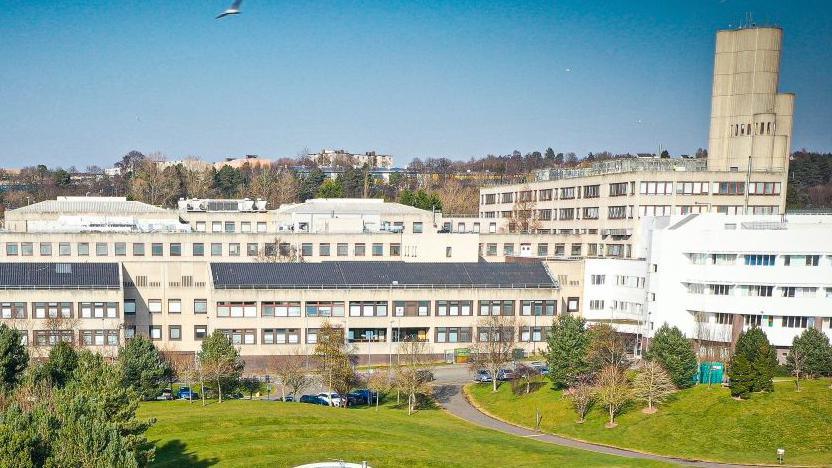
The NICU in Dundee is based in Ninewells Hospital
Premature baby charity Bliss said it "fully supports" the reconfiguration of neonatal services.
The charity said that the current annual volume of cases is "far too low to sustain more than three NICUs in Scotland".
It believes strongly that a reorganisation is needed to ensure that the sickest babies have access to the care "most suited to their needs".
In a written submission to the Scottish Parliament last month, it said the changes would mean that more extremely premature and extremely sick babies would survive.
It added: "We are concerned about the significant levels of misinformation circulating regarding where babies will be transferred to once the new model of care is implemented.
"Neonatal services aim to care for babies as close to home as possible, and the new model of care is based on this principle; including repatriation of babies to unit closer to home when they are well enough."